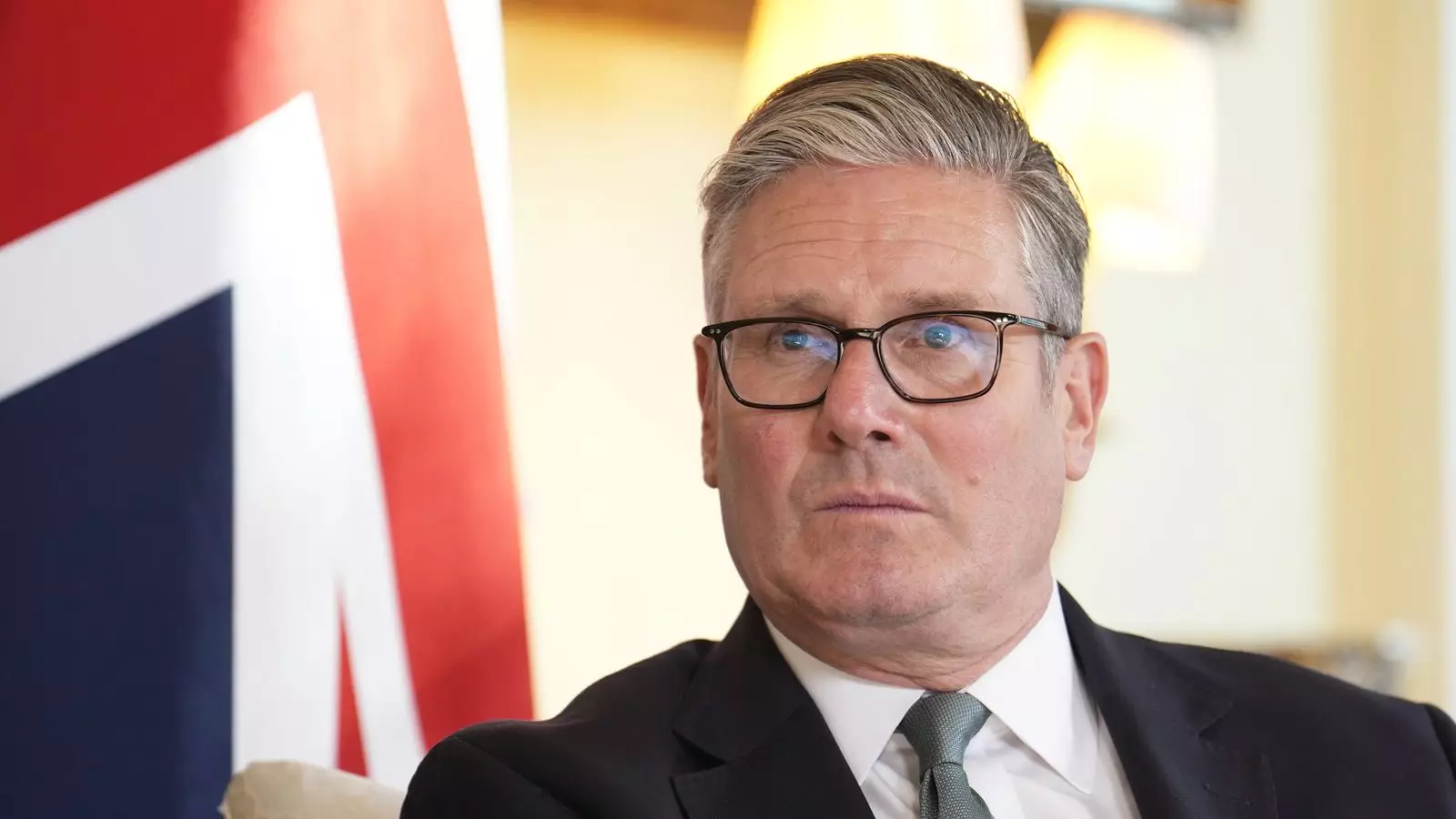The geopolitical tensions in the Middle East are reaching a fever pitch, exacerbated by recent U.S. strikes on Iranian nuclear facilities. The volatile situation proves once again that military actions rarely lead to enduring peace and instead thrust nations into a cycle of retaliation and hostility. While Sir Keir Starmer, the British Prime Minister, has emphasized the need for stability and diplomacy in this unpredictable landscape, his calls for negotiation seem overshadowed by acts of aggression that only deepen the crisis. The urgent need for collaboration and understanding between nations cannot be lost in the chaos of bombings and retaliations.
The Flawed Premise of Military Action
The U.S. strikes in Iran, hailed by ex-President Donald Trump as a significant step in obliterating the threat posed by Tehran’s nuclear ambitions, evoke a sense of foreboding regarding the limits of military intervention. While it is tempting to respond forcefully to perceived threats, such measures often miscalculate the ensuing consequences. Trump’s accolades for obliterating Iranian nuclear sites may provide a brief sense of victory for America, but they also fuel Iran’s determination to secure its nuclear ambitions, further entrenching the underlying tensions. Warfare is a double-edged sword; it can uproot threats temporarily but also create a relentless cycle of vengeance that engulfs entire nations.
Diplomacy Over Force: A Call for Dialogue
Starmer’s calls for Iran to return to the negotiating table should resonate louder than the reverberations of explosions. War is, at its core, the failure of diplomacy; thus, prioritizing discussions over military might should be the guiding principle in international relations. The international community must recognize that the road to peace is paved with dialogue, not bombs. Iran has historically been a reluctant participant in conversations that threaten its sovereignty, yet threatening its existence through military actions will only perpetuate a cycle of distrust and hostility. The invitation for negotiations must be accompanied by a clear demonstration of goodwill by the U.S. and its allies to foster an environment where dialogue can take root.
The Global Response: A Divided Front
The United Nations Secretary-General, Antonio Guterres, voiced his ardent disapproval of the U.S. military actions, emphasizing that such interventions pose a significant threat to international peace. His remarks highlight the essential role that global organizations play in mediating conflicts and the broader ramifications of unilateral military action. The differing responses from global leaders, including the praise from Israeli Prime Minister Benjamin Netanyahu for Trump’s decisive strikes, illustrate how international politics is often defined by alliances and rivalries rather than a mutual commitment to peace. This fractured approach only deepens divides and complicates the prospect of achieving consensus around nuclear disarmament in Iran.
Domestic Implications and Unforeseen Consequences
The effects of military action do not merely ripple across borders; they generate echoes within domestic contexts, too. As Iran’s foreign minister, Abbas Araghchi, warned of “everlasting consequences,” it’s evident that such military engagements can lead to domestic unrest or a surge in nationalism within the targeted nation. The Iranian government may use this external aggression as a rallying point to consolidate power and justify its nuclear program, which ironically may heighten the very threat that military action sought to diminish. The notion of retaliation becomes politically advantageous for leaders who face criticism from their populations, transforming international conflict into a tool of domestic solidarity.
The Case for a New Approach
It is imperative that the world reflects critically on the cycle of violence that defines U.S.-Iran relations. Rather than allowing military interventions to dictate international discourse, a shift toward cooperative security measures and comprehensive diplomatic efforts must be prioritized. With a heavy emphasis on multilateral discussions, nations can collaboratively address the complexities surrounding nuclear proliferation without defaulting to violence. In this era, it is crucial to adopt a mindset that challenges the status quo of militaristic responses and actively seeks to dismantle the barriers that impede sincere communication among nations. A peaceful resolution to this crisis is indeed possible, but only if the power of diplomacy is wielded over the misapplication of military might.


Leave a Reply